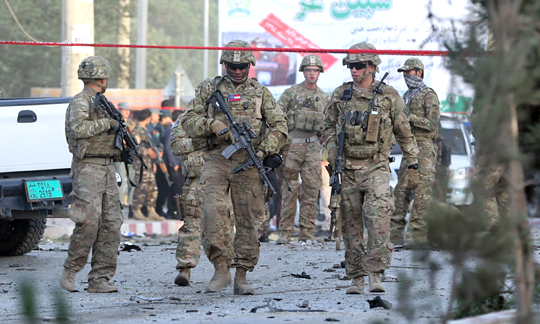Kabul, May 3: A powerful blast targeting a convoy of foreign forces near the US embassy in Kabul killed at least eight people and wounded 25 Wednesday, mainly civilians, officials said, the latest attack in the Afghan capital.

Interior ministry spokesman Najib Danish confirmed the toll from the attack, which came during the busy morning rush hour, telling AFP: "Unfortunately most of (the victims) are civilians."
"We are still checking the nature of the explosion, but I confirm a convoy of foreign forces was passing by when the explosion happened," he said.
Witnesses and social media images showed the foreign troops were travelling in the armoured personnel carriers that are standard for international forces moving around Kabul.
One security source told AFP the blast came when a white Toyota Corolla exploded as the convoy drove by. It was not immediately clear if it was a car bomb or a suicide attack.
No group has yet claimed responsibility for the attack, which came days after the Taliban launched their so-called "spring offensive", in which they vowed to target international troops.
The annual offensive normally marks the start of the "fighting season", though this winter the Taliban continued to battle government forces.
Pentagon chief Jim Mattis, who visited Kabul last month as the US seeks to craft a new strategy in Afghanistan, warned of "another tough year" in the war-torn country for both foreign troops and local forces.
He would not be drawn, however, on recent calls by NATO commander in Afghanistan General John Nicholson for a "few thousand" more troops to break the "stalemate" against the insurgents.
The Afghan conflict is the longest in US history -- US-led NATO troops have been at war there since 2001, after the ousting of the Taliban regime for refusing to hand over Osama bin Laden following the 9/11 attacks in the United States.
The US has around 8,400 troops in the country with about another 5,000 from NATO allies.
A recent UN report showed that Kabul province had the highest number of civilian casualties in the first quarter of the year due to attacks in the capital.
The body had called on all groups to "take every measure possible to prevent unnecessary and unacceptable harm to Afghan civilians"





Comments
Add new comment